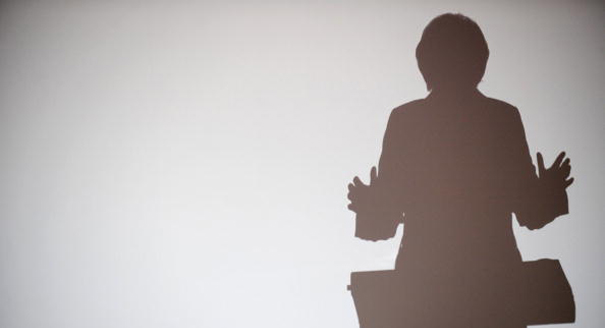Sunday, September 4 was not a happy day for Germany’s Christian Democratic Union (CDU) party. After most of the votes were counted in the regional election in the northeastern state of Mecklenburg–West Pomerania, the far-right Alternative for Germany (AfD) romped home with over 20 percent of the vote. It pushed the CDU into third place. Luckily for the CDU and the center-left Social Democrats, who remained the largest party, they both won enough votes to keep their coalition in power.
The results could have been far worse for the established parties. Compared with the 2011 election, the CDU’s share of the vote fell by 4 percentage points to 19.0 percent; the Social Democrats’ share dropped by 5 percentage points to 30.6 percent. Clearly, the AfD sucked votes from left and right, and particularly from the Left Party, which was once based on the former East German Communist Party.
The AfD managed to capture one-fifth of the votes because it ran a campaign opposed to German Chancellor Angela Merkel’s refugee policy. A year ago, Merkel welcomed hundreds of thousands of people fleeing the wars in Syria and Iraq. Since then, she has faced relentless criticism from Horst Seehofer, the leader of the CDU’s Bavarian sister party, the Christian Social Union, as well as from the AfD.
Seehofer has always insisted that Merkel impose a cap on the number of refugees entering Germany. A recent EU deal with Turkey has stemmed the flow, at least for the moment. But the refugee crisis is far from over.
The CDU was and continues to be highly uncomfortable with Merkel’s refugee policy. The party knows it is losing support, but so far there is no one to challenge Merkel. But it’s not only the refugee issue that bothers the CDU and explains how the AfD is chiseling away at the party’s support. Merkel, since becoming chancellor in 2005, has also fundamentally changed the party in several ways.
She has embraced green policies, despite criticism of the government’s enormous subsidies for renewable energy and the way she abandoned nuclear energy in 2011 without having an alternative energy infrastructure to replace nuclear power.
Such policies were applauded by environmentalists but lambasted by industry, which had traditionally supported either the CDU or the Social Democrats. Since her decision to give up nuclear power, the giant energy companies that had been such a major part of Germany’s political and economic landscape since the 1950s have changed beyond recognition. Because they have had to adapt to Merkel’s polices, as well as to EU legislation to open up Europe’s energy sector to more competition, their power and influence have been radically reduced.
Merkel has also shifted her party to the center through her family policies. Both parents now have the chance to decide who will take paid leave to look after newborn children. The Social Democrats initiated this policy in 2004, but it was taken up by Merkel when she became chancellor a year later.
Then there was the introduction of the minimum wage so fiercely contested by her own party (and, at first, by Merkel herself). Employers’ associations didn’t like that shift either. They saw Merkel giving the party a distinctive Social Democratic flavor.
Merkel—hesitant initially—also supported the abolition of conscription, which was long supported by conservatives. Its abolition had the effect of turning the country’s armed forces into a professional army. More importantly, it began a much-needed debate in Germany about defense and security issues.
Merkel did not enter the debate about giving gay couples the right to be taxed as a couple. Instead, she left it up to the constitutional court to deal with the issue, knowing it would rule in gay couples’ favor. Again, German conservatism was challenged.
None of the above, except for Merkel’s refugee policy, figured at all in the election campaign in Mecklenburg–West Pomerania. But with Merkel at the helm, Germany’s once conservative Christian Democratic Union party has undergone major changes, many of which are irreversible. The big question is whether the AfD or the Christian Social Union will compete to capture what is left of traditional German conservatism and, in turn, challenge Merkel’s Christian Democrats.


-1.png)

-1.png)

-2.png)